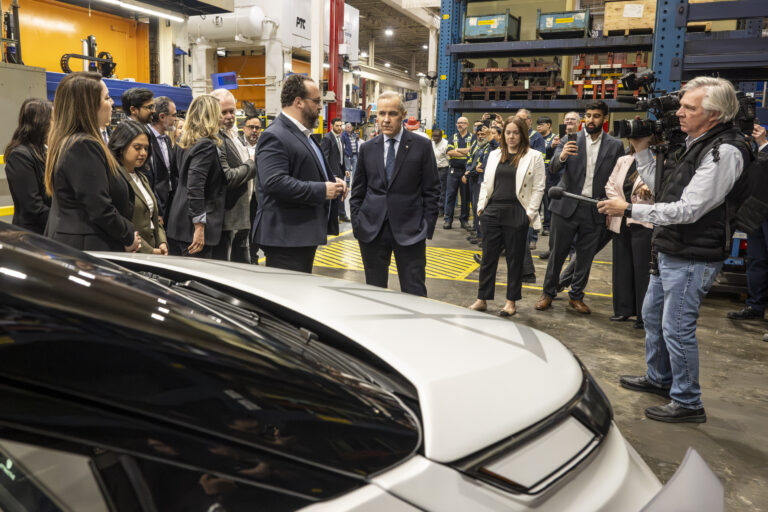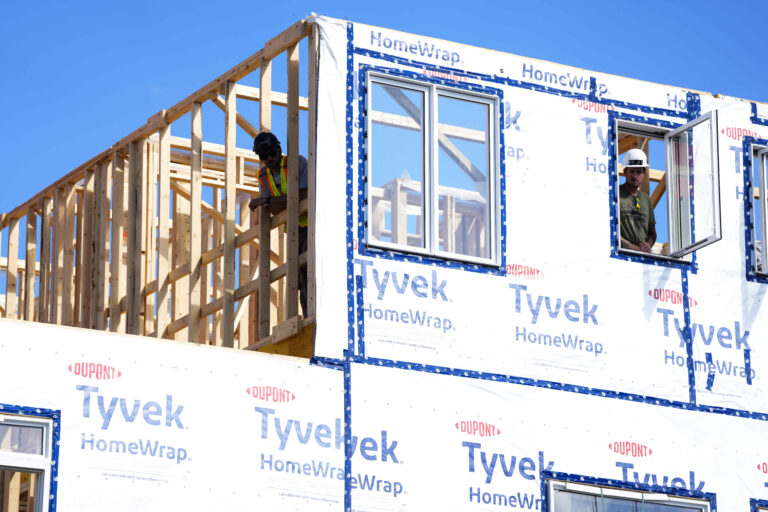U.S. President Donald Trump’s tariffs, threats to annex Canada and musings about the use of economic force against us are shaking the foundations of our economy.
This is not just another storm to be weathered. It demands a rethink of how Canada engages with the U.S. and the world, including how we approach foreign direct investment (FDI).
In March, in response to U.S. threats, François-Philippe Champagne, then the federal minister of Innovation, Science and Industry, tightened Investment Canada Act guidelines to protect against “opportunistic or predatory investment behaviour” by non-Canadians.
Those guidelines are facing an early test now because shareholders of Parkland Corporation, Canada’s largest gas station operator (whose brands include Ultramar, Pioneer, Chevron and On the Run), recently voted in favour of a takeover by U.S.-based Sunoco LP. Under the act, Ottawa can approve or reject the deal.
The Parkland deal may be attractive to the government because it offers US$9 billion to add to Canada’s total FDI, which politicians often tout as an indicator of national economic health. However, due to its volatility and concentration in a few sectors, total foreign direct investment is not a good reflection of the underlying strength of the economy.
In the current context, geopolitical objectives should be paramount. Transactions that transfer control of important Canadian companies to countries with which we are in economic conflict, such as the proposed Parkland acquisition, should be rejected by Ottawa.
This deal would bring none of the benefits typically associated with FDI. It is unlikely to lead to increased capital investment, more or better jobs, or technology transfer into Canada. In fact, its impact may be just the opposite.
Not all FDI is created equal
We typically imagine foreign capital enabling a new manufacturing plant to be built from the ground up, but that kind of FDI – often called “greenfield” – makes up less than one quarter of total inflows.
Greenfield investments can raise concerns about Canada’s economic sovereignty (for example in critical minerals) and in some cases displace domestic firms or capital, but they can also provide the promised benefits, as demonstrated by projects such as Travers Solar in Alberta or Roquette’s investment to build the world’s largest pea protein plant in Manitoba.
This is not the case for mergers and acquisitions, which have accounted for 34 per cent of all foreign direct investment inflow over the last 10 years and almost half of it in 2024 (with greenfield and “reinvested capital,” where foreign-controlled companies keep money in Canada, making up the rest).
Parkland fits into the category of mergers and acquisitions, and demonstrates its downside in terms of capital investment, employment, productivity, innovation and geopolitical risks.
Capital investment
In a typical merger and acquisition FDI deal, capital is used to pay existing shareholders unlike greenfield investments where capital is used to build new assets that contribute to Canada’s economic growth. Moreover, acquisitions are often funded using debt that ends up on the balance sheet of the acquired company, which can stifle its future investment.
In the case of Parkland, new debt of US$2.65 billion will provide the capital required to pay shareholders. While Sunoco has committed to continuing current Parkland investment plans, including at its Burnaby, B.C., refinery, these investments were already expected. No additional capital is expected to build anything in Canada.
Employment
Acquisitions are often predicated on “synergies” where jobs (generally high-paid head office, R&D and manufacturing jobs) are made redundant, usually in the acquired company.
Past acquisitions of Canadian companies have often led to layoffs, such as AMD’s acquisition of ATI, the China National Offshore Oil Corporation’s purchase of Nexen and U.S. Steel’s acquisition of Stelco, which resulted in a government lawsuit. While each instance has its own explanations, these outcomes are not surprising. They are often an intended outcome.
In the proposed acquisition of Parkland, Sunoco is committing to maintain “significant” employment in Canada, but also expects to achieve $250 million in run-rate synergies within three years. Those synergies almost certainly mean layoffs, which are more likely to happen in Calgary than Dallas, where Sunoco is based.
Productivity and innovation
Foreign direct investment is frequently lauded as a driver of productivity and a source of technology transfer from successful multinational firms. But a German study looking at 25 years of that country’s mergers and acquisitions FDI found that almost all productivity gains resulted from reduced employment.
Less-developed economies may benefit from technology transfer. But in economies where R&D and knowledge workers are more prevalent, FDI may be more likely to acquire, rather than offer, new technologies and talent.
As an advanced economy with deep research capacity, Canada’s experience bears this out.
AMD’s acquisition of ATI was to acquire ATI’s technology, not improve it. China National’s acquisition of Nexen was explicitly to transfer technical know-how to China. Alphabet recently acquired North and AdHawk to gain technology it didn’t have. These acquisitions all represent the sale of Canadian technology and knowledge to other countries.
Parkland’s investor presentation is at least honest about this. It doesn’t claim to offer the potential of new technology or innovation to Canada.
Geopolitical ramifications
Finally, the reasons to look skeptically at mergers and acquisitions FDI are stronger in the current context.
The U.S. is the primary buyer of Canadian assets. The Trump administration is currently leaning on U.S.-owned companies to support its geopolitical objectives in relation to China. We would be naive to believe it won’t use the same tools against Canada.
Parkland owns 1,800 Canadian gas stations, with many in rural and underserved areas, as well as the refinery in Burnaby. A sale to Sunoco, whose chair is a longtime Trump ally, risks turning these Canadian assets into bargaining chips, with potential implications for jobs, local fuel prices, supply stability, competition and future investment decisions.
Policy Options series: Industrial policy and the path to a stronger Canada
IRPP study: How Industrial Policy Can Strengthen Canada’s Economy and Sovereignty
Bulldozer or bystander? Canada’s stakes in the new global economy
In the most extreme scenario, the U.S. could use Sunoco’s ownership of these assets to shut down a major refinery or stop delivery to more than 15 per cent of Canada’s gas stations.
Our starting assumption should be that large acquisition-based FDI deals will not benefit Canada in terms of capital formation, employment, innovation or productivity. These deals should therefore be rejected unless they clearly demonstrate that they will provide a net benefit to Canada, without putting our economic sovereignty at risk.
What happens if Ottawa says no to Parkland?
Rejecting an acquisition simply maintains the status quo. As a publicly traded company with sufficient cash flow, Parkland would presumably continue to operate, pay dividends and pursue investments, possibly with an executive shakeup but likely with no harm to employees or Canada’s economy.
This is very different from greenfield, where the downside of the investment not happening may be that a real asset doesn’t get built.
Some will argue that stopping the Parkland deal would chill global interest in investing in Canada. This may be true for large acquisitions, but is unlikely for greenfield projects, where the benefits of foreign investment for Canadians are far more likely to be realized. As well, the government is usually involved in greenfield projects from the very early stages, providing both incentives and support.
If the Parkland deal is rejected, the U.S. may retaliate by preventing some Canadian investments in America – currently the main destination for our outbound FDI. This could limit investment opportunities for Canadian companies and major investors, such as pension funds.
But economic sovereignty isn’t free and this is a price we should be willing to pay. Shifting investment to other countries or investing at home is a rational strategy in the current context.
Who benefits from the Parkland deal?
Acquisitions are not without their winners. Aside from existing shareholders, these deals can be lucrative for senior executives at both firms and for the investment bankers, lawyers, accountants and consultants who support the transaction and integration. In short, a relatively small number of people will benefit from every deal, whatever the outcome for the companies, workers and countries involved.
This is mostly true for the Parkland acquisition, but this deal isn’t even that good for most shareholders, according to analysts. It’s largely driven by one shareholder based in the Bahamas whose alleged objective is to significantly increase his after-tax dividend income.
If there ever was a deal with almost no Canadian winners, this is it.
The March federal decision to increase scrutiny of FDI deals is a positive development that could allow a more strategic approach: one that is focused on building rather than selling. This approach would be easier if we jettisoned total FDI as a measure of economic health.
Policies aimed at attracting global investment should be directed toward greenfield projects that align with wider policy goals while the bar for approving large merger and acquisition deals should be higher.
Saying no to more cross-border acquisitions will require government leaders and policymakers to accept that these deals rarely offer the benefits we imagine. Whether they are willing to make that shift remains to be seen. But, they should start by saying no to Sunoco.













